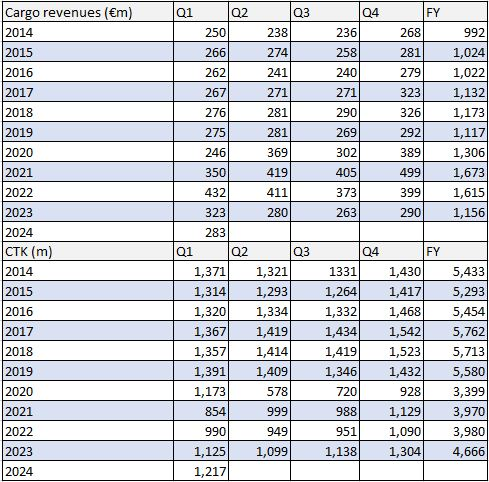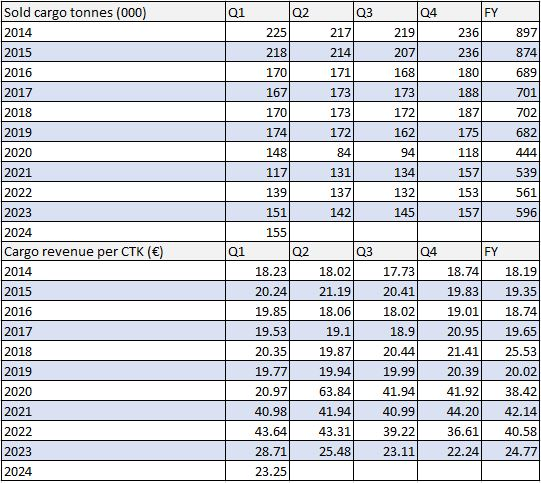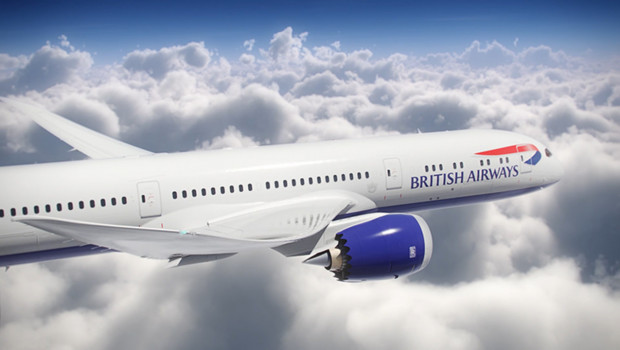British Airways owner IAG said it was “well positioned” for the summer after posting a huge rise in first-quarter profit on the back of strong leisure travel demand, especially over the Easter holidays.
Operating profit before exceptional items in the three months to March 31 surged to €68m from €9m a year earlier. Passenger capacity grew 7% over the period.
On an after-tax basis, IAG posted a better-than-expected loss of €4m, narrower than the €87m reported a year earlier. Revenues rose 9% to €6.42bn.
“Our transformation initiatives and increased demand, including over the Easter holidays, have delivered another very good set of results with improvements to both revenue and operating profit,” said chief executive Luis Gallego.
“Investment across the group in transformation is delivering encouraging improvements in punctuality and customer experience at our airlines. IAG Loyalty continues to perform very well. “We are well-positioned for the summer. The high travel demand is a continuing trend.”
Passenger revenue per available seat kilometre (ASK) was 4.4% higher year on year, through the benefit of the timing of Easter and a continued strong leisure traffic recovery, with business traffic recovering more slowly.
IAG also owns Aer Lingus, Iberia, and Vueling.
While European travel showed signs of momentum, it was a different story in the rest of the world as the wars in Ukraine and Gaza made trading “currently more challenging”.
Revenues per passenger per flight in its Africa, Middle East, and South Asia markets were down because of the impact on services from the conflicts, while ASK revenues to and from Asia-Pacific, also fell as British Airways rebuilt its network to the region after the Covid pandemic.
IAG Cargo sees demand rise but revenues fall in Q1
IAG Cargo registered an increase in cargo traffic in the first quarter of the year but the improvement was not enough to protect revenues from a fall in market rates.
The cargo business of the IAG Group, which includes British Airways, Iberia, and Aer Lingus, saw first-quarter cargo tonne km increase by 8.2% year on year to 1.2m – a reflection of general market growth of around 13% over the first three months according to IATA.
However, IAG’s cargo revenues for the period fell by 12.4% year on year to €283m on the back of falling yields – reflected in a 19% fall in cargo revenue per CTK to 23.25 (€ cents).
Figures from Xeneta show that overall airfreight rates were down 22% in January, 15% in February and 5% in March.

IAG said that cargo performance had benefited from rising sea-air demand from the Middle East to Europe during the quarter.
“Cargo yields, measured as cargo revenue per CTK, were 19% below those of 2023, impacted by the increase in global passenger airline capacity across the industry and elevated prices in the first three months of 2023,” IAG said.
“An increased demand for sea-to-air freight conversion from South Asia and the Middle East helped to partially offset the decline in revenue versus the previous year.”
IAG’s cargo performance in the first quarter reflects a mixed period for the industry overall. Rates have been gradually heading back to pre-COVID levels – except for booming e-commerce demand out of China and some other locations – while demand has unexpectedly been increasing at double-digit percentage rates.

The carrier group also outperformed its European peers Lufthansa and Air France KLM in terms of revenues as they were hit with other issues.
Air France KLM saw its cargo traffic increase by a lower amount of 4% while cargo revenues fell at a faster rate of just over 16%.
The airline group added that revenue performance was affected by “the challenging implementation of an IT system”.
In early March, the company faced difficulties with the rollout of a new IT system at its Paris CDG hub which resulted in booking restrictions that began to be lifted on March 18.
Meanwhile, Lufthansa’s cargo revenues slipped 16%, although cargo traffic was up 10% as it benefitted from the expansion of its European freighter network.
Strike action affected results. The carrier group said: “Operating performance in the Logistics segment declined in the first quarter of 2024 as a result of the challenging market environment in airfreight as well as due to strikes and the strong basis for comparison from the previous year.”





